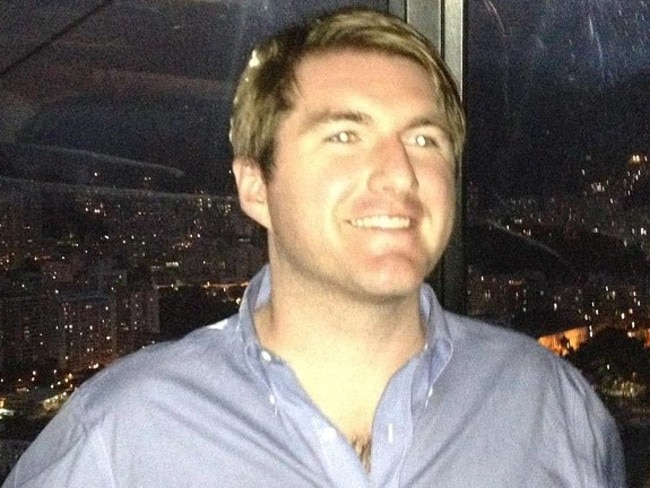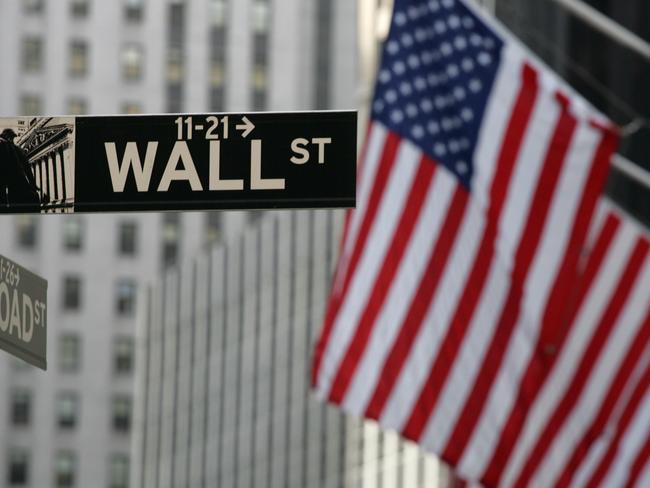Suicides of young bankers on Wall Street are reigniting concerns over working conditions
THEY’VE got one of the most highly sought after jobs in the world. But while the chance to make a lot of money is appealing, it’s proving too much for some young workers.

Banking
Don't miss out on the headlines from Banking. Followed categories will be added to My News.
IT APPEARS as though they have it all — wealth, success and an enviable job. So why are young investment bankers killing themselves?
A number of apparent suicides by young financial workers is raising concerns about the effects of high-pressure work environments and excessively long hours in the industry.
A little over a week ago, 29-year-old Thomas J Hughes, who worked for the investment bank Moelis & Company, fell 24 stories to his death after jumping out of a building in Manhattan.
“The only explanation is that I know he’s been working very hard and has been under a lot of pressure,” his father, John Hughes, told The Daily Mail.

A month earlier, the father of Sarvshreshth Gupta, 22, who worked for investment bank Goldman Sachs in San Francisco ignited debate when he penned an essay entitled “A son never dies”, in which he wrote of the circumstances around his son’s suicide in April this year.
According to his father, the young graduate was struggling to cope with the demands of the job and was working 100-hour weeks.
“He calls us and says, ‘It is too much. I have not slept for two days, have a client meeting tomorrow morning, have to complete a presentation, my VP is annoyed and I am working alone in my office’,” his father wrote.
Hours after making that phone call, Mr Gupta was found dead in the carpark next to his car. He apparently fell from the building.
The essay was published in Medium but has since been removed.
According to The New York Times, after Mr Gupta’s death, the co-head of investment banking and the vice chairman of the bank flew to San Francisco to talk with employees about work-life balance.

Wall St is notorious for drug use and sex workers but it is that very behaviour Mr Hughes’ father believes his son turned to in an effort to cope.
“At a time when he was under stress, he probably resorted to illegal drugs, causing this incredibly poor judgment,” he said of his death.
Although concerns over the impact of the high-pressure industry of investment banking is nothing new. A string of suicides in the financial industry in 2014 led Fortune to ask, “Is there a suicide contagion on Wall St?”
The article focused on a the death of four bankers in the space of a week in January and February 2014.
The same article examined data on suicides from the Centers for Disease Control and Prevention and found a “worrisome connection” between certain finance jobs and an elevated risk of suicide. The group categorised as “sales representatives for financial and business services”, which bankers fall into, are 39 per cent more likely to kill themselves than the rest of the workforce.
A similar finding was reached by America’s National Occupational Mortality Surveillance, which claimed financial sector workers were 1.5 times more likely to commit suicide than the average person in the US.
A number of banks have sought to address the problem and have implemented safeguards to ensure their workers are not overworking.
Banks including Bank of America, Goldman Sachs, JP Morgan and Credit Suisse have told junior staff to take more time off and some have introduced a rule mandating staff take Saturdays off from working.

If you or someone you know may be at risk of suicide contact Lifeline (13 11 14), beyondblue (1300 22 46 36) or the Salvo Care Line (1300 36 36 22).
Originally published as Suicides of young bankers on Wall Street are reigniting concerns over working conditions


